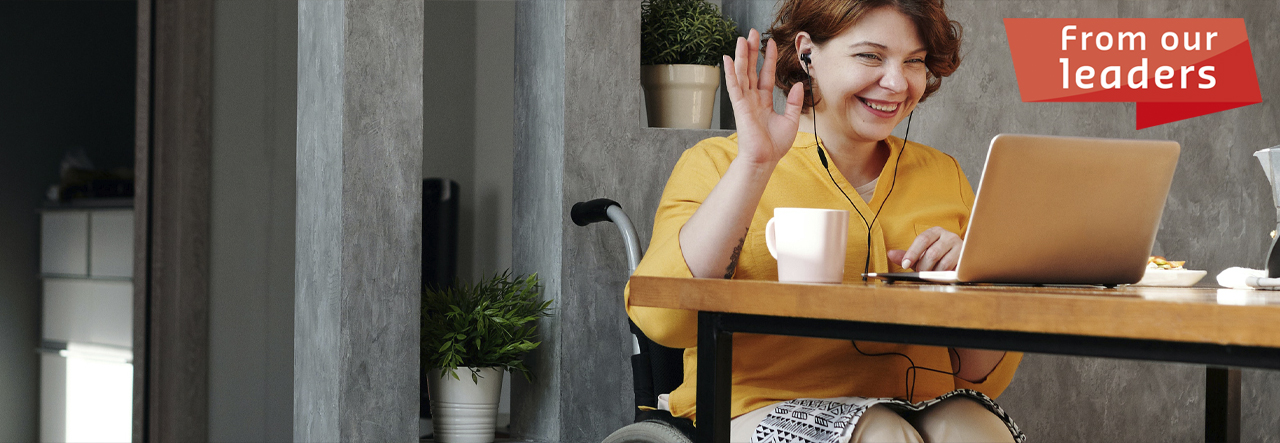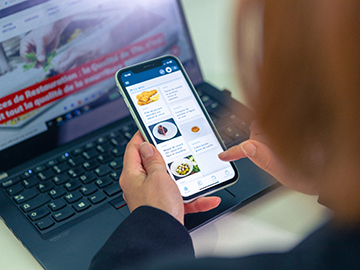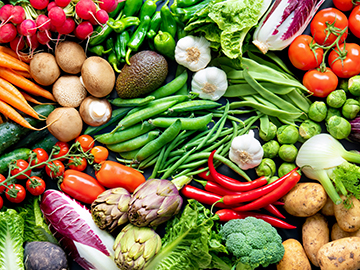One of the many downsides of Covid is that those who felt marginalized pre-Covid are feeling it even more these days.
From facing reduced lifeline services such as public transportation, reduced access to local services and 'blanket measures' that don’t take into account the specific needs of disabled people, the pandemic has exacerbated the isolation of people with disabilities.
In addition, vulnerable populations are not just at greater risk from the virus. Covid itself is also a new source of disability, at scale. Among the 40 million victims who have recovered from the disease, many of them will be affected by lingering impairments: lack of smell, shortness of breath, chronic headaches. A small study conducted in Italy found that as many as 44% of patients could experience ailments that worsen their quality of life.
An aggravating situation considering that few employers have a reputation for being 'disability confident'. Sodexo conducted a study in the UK, in which only half of the respondents described their employer as 'disability confident'. While 75% of respondents informed their line manager of their disability, a third of those who didn’t were worried that there would be repercussions.
Thus, negotiating the workplace can be particularly tricky for people living with a disability. Will I be subject to abuse or bullying because of my disability? Will I be seen as troublesome because I need adjustments? Will I even be considered fairly if I disclose a disability? These situations, when not managed proactively by employers, often lead people living with disabilities to feel even more excluded.
Of course, organizational changes such as implementing a non-discrimination policy regarding people with disabilities, making accommodations, and empowering support groups championed by executives are great ways to make the workplace more inclusive. But these measures alone are not enough.
More fundamentally, we, as individuals, need to become more 'disability confident'. It’s our unconscious 'disablism', our lack of confidence to approach disabilities, resulting from ignorance in the mild case to outright discrimination in the worst, which impedes progress. Having unconscious biases doesn’t make us a bad person, it makes us human. Backhanded compliments “Aren’t you brave...”, or unsolicited advice, can come from unconscious biases. Those of us who do not have a disability naturally assume that how we experience life and interact with others is the way everyone does (or should).This has clear consequences: 79% of people living with disabilities believe it’s harder for them to build and nurture inner confidence.
Another common source of biases is that we assume most disabilities are visible, when in reality they’re not. Mental health issues (being anxious, feelings of emptiness, inability to focus) but also many physical impairments (instability, poor balance, paralysis, coordination issues, chronic pain, sensory deprivation) are not visible.
Understanding what it means to live with disabilities, something that 15% of us will experience at some point in life, is thus paramount for society to evolve as a whole. We might not have identified as disabled when we first entered the workforce, but as we age and we work longer, there is a very real chance that we will become disabled as our eye sight changes, our hearing diminishes, or we develop underlying health issues.
So do something! Make a change, confront and admit your unconscious bias and become more disability confident – if not just for those who are disabled now, but for those – including potentially yourself – who might be among the disabled in the future.
Not all disabilities are visible, find out more about our commitment to disability inclusion.




